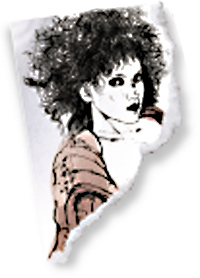Quotes of the Day

Sunday, Dec. 01, 2002
![]()
|
Prada's Sheikha Chic
What do you give the Sheikha who has everything? Kuwaiti Sheikh Majed Al-Sabah may have provided the answer by launching the first-ever line of designer caftans. "The caftan is our T shirt and jeans," says Al-Sabah. "It's what you throw on when you're running to the store." Of course, Middle Eastern aristocrats can't throw on just anything. So Al-Sabah convinced Miuccia Prada, the Fendi sisters, Roberto Cavalli, Domenico Dolce and Stefano Gabbana and other top-drawer designers to produce limited-edition caftans — and matching bags and shoes — for his Kuwait City shop, Villa Moda. The Miuccia Prada creations made their debut in late November, with prices ranging from $3,545 for a blue-and-green silk number to $10,000 for one in black sheared mink. (They are also available in select Prada flagship stores, by special arrangement with Villa Moda.) At the launch party, one of the richest women in Kuwait reserved five of the most expensive pieces; she came back two days later to order two more, for her daughter and daughter-in-law. The caftans are currently on tour in the Middle East, for the private viewing of various royal families. But Villa Moda is already getting calls from interested buyers in Europe and Asia.
Heavy Reading
Every industry should have a best-of list, whether to serve as ready reckoner of excellence or to make those who aren't on it insanely jealous. Now industrial designers have their own source of information and anxiety: Spoon (Phaidon) is a list of 100 of the top designers, as selected by 10 luminaries, including product designer and teacher Ron Arad and Giulio Cappellini, CEO of the furniture company that bears his family name. Some of the 100 are already established — like France's Bouroullec brothers, The Netherlands' Hella Jongerius, London's Tord Boontje — while others are up-and-comers. Each is given four pages, enough for a sample of their work and a critique by the curator who nominated them. The $75 book is a great resource for anyone working in design, but Phaidon is also keen to make it the hip layman's must-have coffee-table tome. To that end, it commissioned designer Mark Daiper to create a coated steel cover designed to look like a spoon. Sadly, the result — heavy, wavy and sharp enough to cut if not handled carefully — does more to detract from the book than reflect the quality of the work inside.
- LAUREN GOLDSTEIN
- Why Stella's models look drawn
| Source: The next time you see a Stella McCartney ad, you might notice that the model seems a bit drawn. Look closer: she is.
